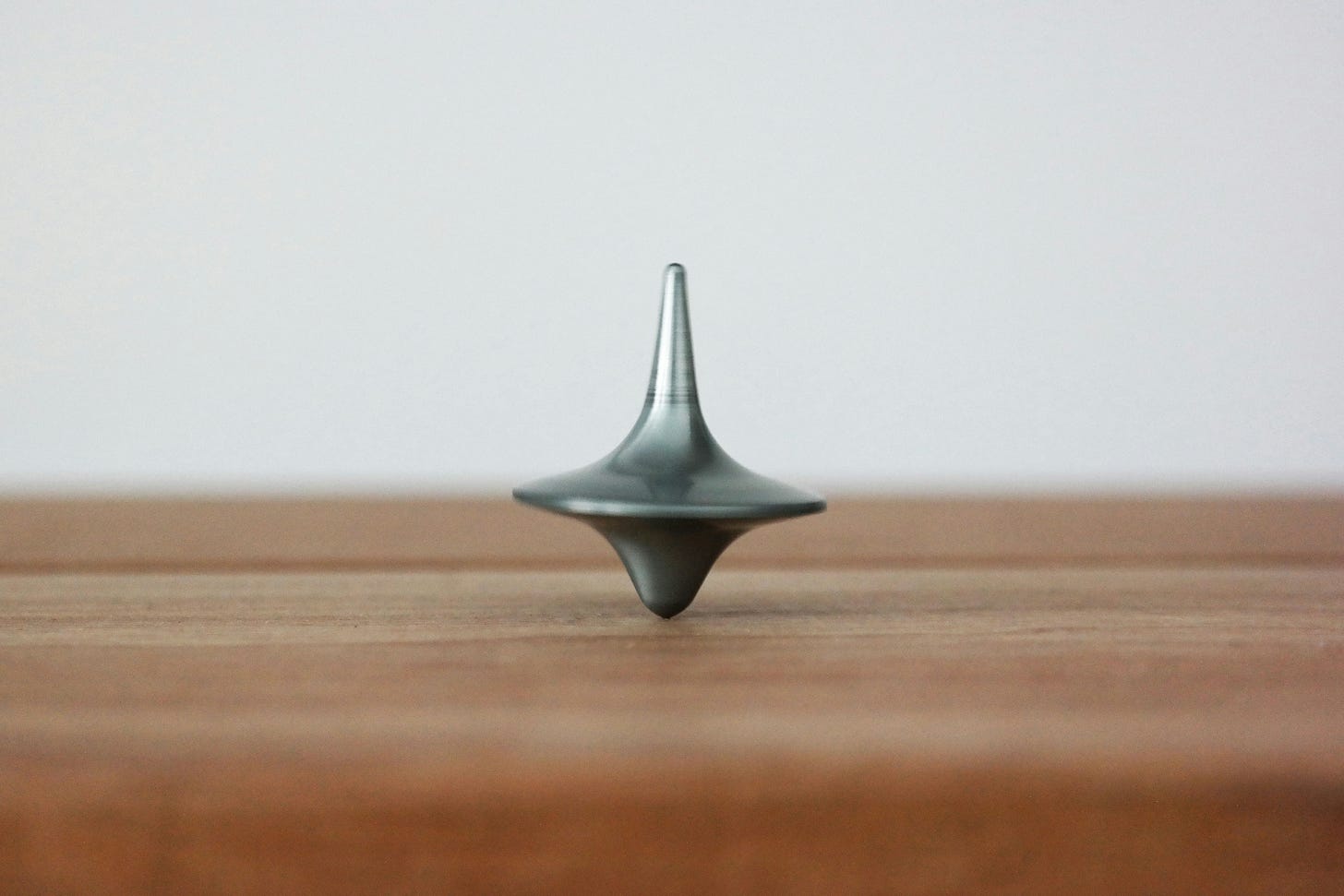Questions You Should Ask Before Deciding Who Should Be the 2024-25 NBA MVP
Or, "How to overthink who wins an award"
I have written versions of this column over the years, starting with my first major full-on MVP analysis season in 2017. It’s become one of my go-to columns, because it helps elucidate not what we think about the MVP race, but how we think about it.
For many, this may seem a little too much overthinking.1
If you’re trying to find the right framework, though, to really give the things that deserve consideration their due while sorting through the complications and counter-arguments, hopefully, this can be helpful.
We’re not trying to simplify this legendary MVP race; we’re trying to bring things into clarity because this is set to be such a tight finish.
For the purposes of this exercise, we’re going to focus on Shai vs. Jokic. Giannis deserves consideration; his season has been ridiculous (again), but he may not cross 65 wins, and the Bucks are just not at the level they need to be at for him to be in consideration.
Here are some questions you should ask as you try to decide who you think should win the NBA’s Most Valuable Player Award for 2024-25.
HOW DO YOU DEFINE VALUABLE?
We start with this with every iteration. There is an assumption made sometimes that “valuable” has a clear definition.
It does not.
The league leaves this purposefully vague and undefined for you to determine. It does not mean “most valuable to their team.” It does not mean “most valuable in the league.” It does not mean “most valuable by position.” You can choose to define it that way if you want, but there’s no right or wrong way.
Well, OK, there’s kind of a right and wrong way.
The key is that you have to approach it with consistency.

For example, say you want to say that it’s the best player, period. That’s it. Who’s the best player?
OK, what if they only play 35 games (and we get rid of the 65-game limit in this example)? What if they only play 50? What if they don’t play at all? Nikola Jokic is the best player in the world by consensus. Does that mean that no matter how Jokic plays, he wins?
Let’s say you define it by “how good you were, regardless of team performance.” A lot of people like to go down this road because it solves the difference between their guy and someone who won more games.
Let’s say Jordan Poole decided to go all the way into usage God one season, and the Wizards, being the Wizards, were fine with it. And Poole has a 45% usage rate at 45 minutes per game and somehow doesn’t break down.
Let’s say Jordan Poole averages a 30-point triple-double on not-awful efficiency for a team that wins 35 games.
Should Poole be considered for MVP? Should he win if no one was in that range?
This is why the “valuable” question is important but complicated. It can’t be one thing, no matter how much people want it to be. It can’t be points plus rebounds plus assists, or advanced metrics, or wins, in a vacuum. It can’t be just “who was the best story?” or “best player on the best team.”
It’s always a combination.
Now, you can have a threshold and then choose based on any of those parameters.
Ramona Shelburne has been covering the NBA for decades. She’s a prominent voice in telling the league’s story. In the past, she has leaned on what the “story of the season” is among the players being considered.
There’s nothing wrong with that framework. It’s consistent and thoughtful. You can disagree with the approach, but the execution of how she answers “valuable” is done the right way.
For me, I’ve settled on “who contributed the most impact towards winning for their team.” That definition allows me to consider the context of how they contribute, how much they contribute, and how good the results were.
But you have to choose your own definition for what “valuable” means.
HOW MUCH DOES WINNING MATTER?
This is the crux of it this season.
If we accept that winning matters, how close does the gap have to be for winning at an elite level not be the difference?
Shai Gilgeous-Alexander and the Thunder are on pace for 66 wins at the break.
They’ve slowed down just slightly from the 70-win pace they were on for the first half of the season. If they ramp up and push, there’s a good chance they can cross 67 wins, which puts them in line for the top seven teams in win percentage all-time.
If SGA leads the league in scoring2 for a team that wins 67-plus, how can you not give it to him? That’s the question, at least. 3
Now, if Jokic were tracking towards sub-50 wins like he was for a while, this would be toast. Currently, Denver’s tracking towards 53 wins. They are basically where they were last year at the break before they tore out of the break and tied a franchise record with 57 wins. 4
But Jokic is winning too; he’s just not winning as much.
So you have to parse between the two.
If Jokic wins 55 games and Shai wins 62, is that enough of a gap for Shai? If Shai averages 30 points per game and wins 67 games, is there a number that Jokic can get to?
If Jokic wins 57 and Shai wins 65, a great record, but 18th all-time, does that compensate for the difference?
You can go with “I don’t care, winning is most important, if he wins more games, it’s Shai.”
OK, but then did you think Tatum should win last season? What if the Cavs finish with more wins, should it be Darius Garland? No, right? So we almost have to agree that production matters.
For me, it’s always been this formula:
(winning X production5 X impact)
But you have to figure out how much each needs to be.
WHAT DID YOU CONTRIBUTE TO YOUR TEAM’S WINNING?
This is a deeper question but it’s one that gets ignored by most.
In 2017, I settled on James Harden for MVP.6 There’s been a souring on Russ as that year’s winner with time, but I have maintained and will maintain that Russ was a deserving winner. It was the best year I have found in research.
The deciding factor for me between Russ and Harden7 was that both players primarily contributed to offense, but Houston had the second-best offense in the NBA while OKC had the 15th. The Rockets’ offense with Harden on the floor was five points per 100 possessions better than the Thunder’s offense with Russ.
This season, the Thunder offense is 6th.8 Good! But not elite. OKC’s defense, however, is a chainsaw-mouthed monster of death. OKC is on pace for the sixth-best defense, era-adjusted, in NBA history.
That’s the biggest reason they win. Shai Gilgeous-Alexander has been a great defender this season. He’s second in steals. He’s contested the most shots on OKC. Among players with at least 300 contests, he’s allowed the 11th-lowest field goal percentage and points per possession mark.
But no one who watches OKC would argue he’s been their best, second-best, or third-best defender. It’s Lu Dort, Chet Holmgren, Isaiah Hartenstein, and probably Alex Caruso and Jalen Williams before him.
Denver is second in offense. Among players with at least 40 games played and 30 minutes per game, the Nuggets have the best offense in the NBA with Jokic on the floor, higher than any other player this season.
Shai’s won more; Jokic has arguably contributed more to his team’s winning.
But then, if you balance it across offense and defense, Shai pulls ahead.
Shai’s not the best defender on his team? He’s closer to the top than Jokic is on his team.
Jokic makes Denver’s offense the best in the league? Shai contributes, and heavily, to the best defense in the league while also producing at an elite level for a top-level offense.
This matters because it goes beyond just putting up numbers for a winning team and toward understanding the relationship between individual play and winning.
HOW MUCH DO STRENGTHS VS. WEAKNESSES MATTER?

Let’s ask this question: let’s say there was a defensive player who was so dominant, his team was the best in NBA history defensively when he was on the floor.9
But he couldn’t shoot. Not a lick. He couldn’t pass, he had no hands, and he was awful at free throws. But he was so good defensively that his team lived with all of it and still won 65 games with an elite differential 10
Is that the MVP?
You can answer this either way, and neither Shai nor Jokic is that bad on either end of the floor. However, establishing how we feel about those boundaries helps guide us.
Jokic has had good and bad defensive seasons. This is one of his worst in my estimation. Much of that is a consequence of the effort and usage he has taken on this season.
Shai is not as good offensively as Jokic; that’s hard to argue otherwise. Jokic shoots better from everywhere on the floor and is still averaging 30 and averages double-digit assists. But Shai is a way-above-average defender, and Joker this season has been slightly below average .11
Is it OK if your strengths are way better than your weaknesses, or if your strengths are strong and your weaknesses mild?
There are more questions to ask about this race, and we’ll get into them over the next few weeks as I begin the deep dives. But hopefully this has given you something to think about as we head into the final stretch of an incredible MVP season.
Welcome! That’s all we do here.
With 6 assists and 5 rebounds on good efficiency (some would say great!) while being second in steals.
This is the difference between him and Tatum last year. Tatum had the wins, but you do have to have a certain level of production. Just as we accept that you have to win on some level, you also have to put in the production and impact.
DunksAndThrees.com has them projected for 51.3 wins.
With production being the box score stats you produce with consideration for usage and efficiency. Higher usage leads to higher production but lower efficiency. If you exceed that push and pull, it’s a good sign of elite production.
The one year I had a vote before I left for Action Network, and because votes are mostly awarded on outlet, I lost it. Worked for years to get a vote, had it one year, and lost it. Do I regret it? Not a bit, because, well, money.
Kawhi, who was Zach Lowe’s vote, and LeBron both had great cases that year too.
We may have to actually ponder this in reality with Wemby in the next few years.
Again, this is a hypothetical; this would never happen, and the proof of that is Mattise Thybulle’s career.
The moronic “here’s a play where Jokic gets cooked” posts are useless and you should ignore them. I promise you I can find similar possessions for every player in the league. What matters is the aggregate or sum of the effort and performance.







Going back to Westbrook, how does one account for what the eye test suggests was his tendency to make bad decisions and take bad shots that from time to time cost his team games? MVP is a regular season award, so maybe it doesn’t matter, but it would seem that in a short series against elite defenders this tendency (assuming I’m correct) could have (and may well have) been a huge negative.